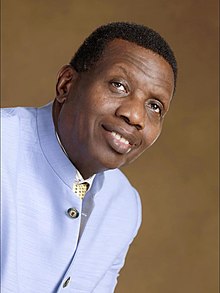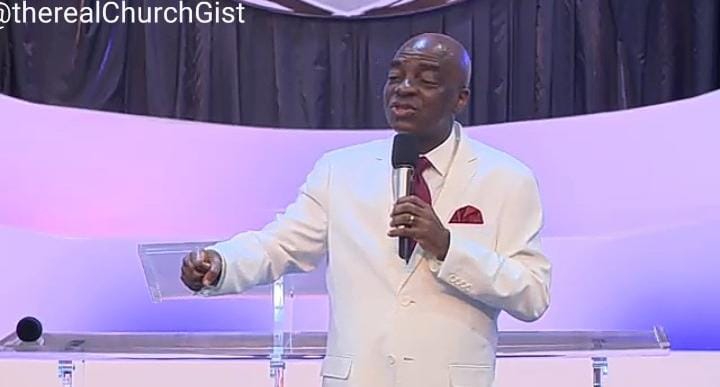
I received an email from someone who is struggling with some decisions that have not worked out the way they expected. The details don’t matter except to say that the person took what seemed to be a step of faith and the result has been a great big mess.
“What did I do wrong?”
That’s a natural question to ask when life rewards your courage with nothing but trouble. The truth is, it’s entirely possible that this person did nothing wrong. Or maybe they did, but their current troubles are not proof that they were wrong in the first place.
That’s a hard truth to accept, especially when you’re the one in the middle of the mess, after you’ve done what you thought was the will of God. There are a lot of things that might be said at this point, but perhaps this one needs to be mentioned first.
Join the club.
What club is that? The International Fellowship of Faith-Walkers Who Feel Like Failures. The bad new is, we’re all a member of that club at one time or another. The good news is the membership includes every major Bible hero. Peter is a charter member. And so is David. And Gideon. And Noah. And Sarah. And Job. And Jacob.
The list goes on and on. Hebrews 11 offers us a long list of men and women who obeyed God even when things didn’t always work out they way they expected. The names written there are like a biblical hall of fame: Abel . . . Enoch . . . Noah . . . Abraham . . . Sarah . . . Jacob . . . Joseph . . . Moses . . . Joshua . . . David. Different people, different stories, widely separated in time and space. Stories that span thousands of years. Stories that encompass murder, natural catastrophe, family treachery, physical weakness, failed dreams, missed opportunities, sibling rivalry, and military conquest. The men and women whose stories are told in this particular chapter differ in every way but one. What they did, they did by faith.
All of them had moments when they must have wondered, “What did I do wrong?” Yet God considered each of them worthy of mention in this great chapter. Our focus in this message is on the man we often call “Father Abraham.” In the Bible he stands as the preeminent example of a man who lived by faith. Hebrews 11:8-10 tells how he obeyed God’s call at great personal sacrifice. It tells us what he did; more importantly, it tells us why he did it. And it clearly shows us that obeying God doesn’t always work out the way we think it will.
Let’s begin with some brief facts about Abraham. When we meet him in the Bible, he is living 4,000 years ago in a far-off place called Ur of the Chaldees – on the banks of the Euphrates River, not far from the mouth of the Persian Gulf. No doubt he and his wife Sarah worshiped the moon-god Sin. He is a prosperous, middle-aged man, successful by any human standard. Life has been good to Abraham and Sarah. Certainly they have no reason to complain.
It is at precisely this moment that God speaks to him – clearly, definitely, unmistakably. What God says will change his life – and ultimately alter the course of world history.
So what does it mean to live by faith in an uncertain world?
Truth #1: Living by faith means accepting God’s call without knowing where it will lead.
“By faith Abraham obeyed when he was called to go out to a place that he was to receive as an inheritance. And he went out, not knowing where he was going” (Hebrews 11:8). There is only one way to describe Ur of the Chaldees. It was a world-class city. Archaeologists tell us that in Abraham’s day perhaps 250,000 people lived there. It was a center of mathematics, astronomy, commerce and philosophy. People from outlying areas moved to Ur because they wanted to be part of that great city.
No doubt many of Abraham’s friends thought he was crazy. Why would anyone want to leave Ur? Obeying God’s call meant giving up his friends, his career, his traditions, his home, his position, his influence, and his country. More than that, it meant risking his health and his future on a vague promise from an unseen God to lead him to “a land that I will show you” (Genesis 12:1).
When Abraham left Ur, he burned his bridges behind him. For him there could be no turning back. Once he left the walls of Ur, he was on his own, following God’s call into the unknown.
You say, “He gave all that up?”
“Yes.”
“That’s kind of strange, isn’t it?”
“Is it?”
Please don’t miss the point. When God calls, there are no guarantees about tomorrow. Abraham truly didn’t know where he was going, didn’t know how he would get there, didn’t know how long it would take, and didn’t even know for sure how he would know he was there when he got there. All he knew was that God had called him. Period. Everything else was up in the air.
You want a long life? So do I.
You want to rise in your profession? So do I.
You want lots of friends? So do I.
You want to grow old and die with your family around you? So do I.
There’s nothing wrong with those desires. All of us feel that way. But living by faith means no guarantees and no certainty about the future.
I was once approached by a Christian ministry asking if I would consider a particular position in their organization. I met the people, liked them very much, and was very impressed by what they were doing. As I investigated further, I found that they take very good care of the people who work for them. I liked everything I learned about the people and their ministry. But when the moment came, I decided to say no. This isn’t how I put it to them, but it’s how I said it to myself.
I couldn’t hear the bells ringing.
You either understand that or you don’t. If you don’t, there isn’t much I can say that will be helpful. And if you do, there isn’t any explanation that is needed. But I will add this much. All of us come to moments in life when we say yes or no to certain opportunities simply because it’s the right thing to do at the time. Sometimes we take a job because we need to pay bills and take care of our family. It’s hard to get more basic than that. And young people take jobs in various places as they are building their careers. I just read an article that suggests that the average worker in the US may have as many as 10 jobs by the time he is 40 and will make 3-5 career changes by the time he retires. People make moves and change jobs and relocate and start over again for all sorts of reasons. Sometimes you are forced to make decisions for reasons beyond your control. In these tough economic times, people scramble to take whatever jobs they can find. But there are moments in life when you have a choice, a decision, and you can stay where you are or you can do something different. I don’t know of any failsafe way to know in advance how things will work out.
Abraham heard the bells ringing (not literally – that’s a symbol for a sense of God’s calling), and so he left Ur of the Chaldees. If you truly want to do God’s will, sometimes you will find yourself exactly where Abraham was – setting out on a new journey that doesn’t seem to make sense from the world’s point of view. How would he ever explain his decision to leave the comfort of Ur for the uncertainty of a long trek across the desert? The only certainty he had was that God had called him and he must obey. The rest was shrouded in mystery. That fact makes his obedience all the more impressive. The NIV version of Hebrews 11:8 says he “obeyed and went.” There was no greater miracle in his life than that. Everything else that happened flowed from this basic decision. God called; he obeyed. That truth was the secret of his life. He stepped out in faith even though there were no guarantees about his own personal future.
Let me put it another way. Living by faith means stepping out for God and leaving the results to him. It’s no guarantee of long life and good success. You may have those blessings. But you may not.
The life of faith means, “I am going to be the man or woman God wants me to be, no matter where it leads. I don’t know the future, but I’m trusting him to work out the details. In the meantime, I step out by faith and follow where he leads me.”
That brings us to the second great truth about living by faith.
Truth #2: Living by faith means waiting on God to keep his promises.
“By faith he went to live in the land of promise, as in a foreign land, living in tents with Isaac and Jacob, heirs with him of the same promise.” (Hebrews 11:9). There is within all of us a natural desire to settle down. The older I get, the less I like to move. I value coming home to the same place and the same faces every day. Several years ago we moved from Oak Park, Illinois to Tupelo, Mississippi. As we were packing, our home was filled with boxes waiting to be loaded on the moving truck. It was unsettling to look at bare walls that only a few days before were covered with familiar pictures. Suddenly that home looked less like a home and more like a building where we used to live in some distant past. Now run the clock forward 18 months. When we came back to Oak Park for a visit, we drove past our old home on Wesley Avenue. I had a strange sensation, as if I remembered living there in the distant past. It looked the same but it didn’t feel like home to me at all.
There is a certain rootlessness about our life at this point that is instructive. Now that our boys are in their twenties, they are going in all directions at once. Four years ago our oldest son left to teach English in China. He came back and another son went to China. That son came back and another son left for China. Josh met Leah, they got married and went to China for a year. Mark met Vanessa when they served on the same team in China. After they came back to the States, they got married. When Josh and Leah returned to the States two weeks ago, it was the first time in four years that we haven’t had a son in China. Two years ago our family was together for a total of three days. Last year I think we were all together for about five days. This year we will all be together for three or four days. That’s the way life is – and will be for the foreseeable future. It has hit me that home is a matter of the heart, a moving target, not so much a place as being with the people you love the most. Wherever they are – in the U.S. or in China or anywhere else – is home in the truest sense.
The rootlessness I spoke about can leave you with a vague sense of uneasiness, of trying to figure out where you belong. Multiply that feeling by a factor of 100 and spread it out over fifty years and you approximate Abraham’s situation as he came to the Promised Land. Our text tells us that he lived in tents. I know lots of people who like to camp on vacation, but I don’t know anyone who voluntarily lives in a tent as a permanent residence. Tents speak of impermanence, of the possibility of moving on at any moment, of the fact that you live on land you do not personally own.
That’s Abraham. He didn’t own anything in the Promised Land. God had promised to give him the land; yet he lived like a stranger in a foreign country. If you don’t own the land, you can’t build a permanent dwelling there.
In many ways this is even more remarkable than leaving Ur in the first place. As long as he was traveling across the desert, he could dream about the future. But when he got to Canaan, all illusions disappeared. Think of what he didn’t find:
- No “Welcome, Abraham” sign.
- No discount coupons from the merchants.
- No housewarming party.
- No visit from the Welcome Wagon.
- No mayor with the key to the city.
- No band playing “Happy Days Are Here Again.”
- No ticker-tape parade.
Nobody expected him. Nobody cared that he had come. Nobody gave him anything.
God had promised him the land . . . but he had to scratch out an existence in tents. Hundreds of years would pass before the promise was completely fulfilled. Abraham never saw it happen. Neither did Isaac or Jacob.
Was Abraham in the will of God? Yes. Was he right to leave Ur? Yes. Was he doing what God wanted him to do? Yes. Why, then, was he living in tents? Because God’s timetable is not the same as ours. He’s not in a big hurry like we are. God works across the generations to accomplish his purposes; we’re worried about which dress or shirt to buy for the big party this weekend. There is a big difference in those two perspectives.
A third principle at work in Abraham’s life is the ultimate key to the life of faith.
Truth #3: Living by faith means never taking your eyes off heaven.
“For he was looking forward to the city that has foundations, whose designer and builder is God.” (Hebrews 11:10). As I have mediated on this verse, it hit me that there is a certain amount of disappointment built into the life of faith. Sometimes we think, “If I follow God’s call, everything will work out and I’ll be happy all the time.” As Dr. Phil likes to say, let me know how that works out for you. By saying that Abraham was “looking forward” to a city, it really means that he never found what he was looking for in this life. This world comes with a huge helping of frustration built into the core of everything. Just recently I read about a certain baseball manager who led his team to a World Series championship. It was a happy moment, the apex of his career, the proof that he had finally arrived, that he was a success and the best in the world at that moment. The next morning as he went outside to pick up the paper, he thought to himself, “Is that all there is?” The answer is yes, that’s all there is. It’s the same way with everything we do and everything we accomplish.
We live, we die, we buy a house, we sell a house, someone moves in where we once lived. We take a job, we leave a job, someone else takes the job we used to have. And if we are fortunate enough to have a corner office with an incredible view, we should remember that someone else had it before us and someone else will have it after us. If this moment is golden for you, enjoy it but don’t grasp it too tightly because it won’t last forever.
That’s one part of the life of faith. We never reach full satisfaction in this life. “Ah, but a man’s reach should exceed his grasp, or what’s a heaven for?” said Robert Browning. And that brings us to the second part of verse 10. Abraham looked for a city with foundations—that is, for a “city,” not a lonely spot in the desert. He wanted to live in a place filled with other people. He also looked for a city with “foundations,” a place with security and permanence that could not be found in a tent. That meant he was looking for a city designed and built by God. Why? Because all earthly cities eventually crumble to dust.
Not long ago I visited the ruins of the ancient city of Jericho. When most people think of Jericho, they think of the city whose walls came tumbling down in the days of Joshua. But that’s only one Jericho. Archaeologists have discovered layers of Jericho, one after another, the city having been built, destroyed, and rebuilt across the centuries. The same is true of Jerusalem. When you visit Old Jerusalem, you aren’t exactly “walking where Jesus walked.” You are actually walking thirty to seventy-five feet above where Jesus walked. According to one source, Jerusalem has been destroyed and rebuilt at least forty-seven times in the last 3,500 years.
That’s the way it is with all earthly cities. Nothing built by man lasts forever. No wonder Abraham was looking for a city built and designed by God. Revelation 21 describes that city as “the new Jerusalem, coming down out of heaven from God” (v. 2). In his vision John saw a city of breathtaking beauty, shining with the glory of God, “its radiance like a most rare jewel, like a jasper, clear as crystal” (v. 11). Christians have always looked to the New Jerusalem as the final abode for the people of God, the place where we will spend eternity together in the presence of the Lord. But note this. Heaven is a city. It’s a real place filled with real people. That’s the city Abraham was looking for when he left Ur of the Chaldees.
Following God’s will doesn’t guarantee worldly success. He had his heart set on heaven, and that explains why he could:
- Leave the beautiful city of Ur.
- Walk away from his career.
- Leave his friends far behind.
- Live in tents until the end of his life.
- Start all over again in a new land.
- Die without seeing all that God had promised.
Abraham knew he was going to heaven, and that changed his whole perspective on life. He knew not just that he was going to die, but that after death he was going to enter a city God had designed and made.
Let me add one final thought from this passage. If you had been a consultant watching Abraham’s life, you would probably say that he committed career suicide when he left Ur of the Chaldees. It didn’t make sense at the time, and frankly, the rest of his life was never a “success” in worldly terms. Hebrews 11:10 says that Abraham was motivated by a vision of something the people around him simply couldn’t grasp. He was looking forward to something they couldn’t see at all. Following God will sometimes lead you to make decisions that those around you simply will not understand. When that happens, all you can do is to explain things as best you can, and then set off to obey God’s call, leaving the results in his hands.
“Died at Twenty-five, Buried at Seventy-five”
Let me ask a personal question: How long do you expect to live? To put it more pointedly, how many more years do you think you have left before someone holds your funeral service? Ten years? Twenty years? Thirty years? Forty years? Fifty years? Sixty years? How much of that time are you sure of? The last question is easy. You’re not sure about any of it. The truth is, you could die tomorrow – or today – from any of a thousand causes. No one knows how long he or she will live or precisely when they will die. There are no guarantees for any of us.
It’s not how long you live that matters, but what you do with the years you are given. Too many people die at age twenty-five but aren’t buried until they are seventy-five. They waste their best years in trivial pursuits, all the while missing out on the excitement of living by faith.
Here is the whole message in one sentence. Following God’s will doesn’t guarantee worldly success. The operative word is worldly. God has one view of success; the world has another. Joshua 1:8 reminds us that those who meditate on God’s Word will be “prosperous and successful.” Psalm 1 contrasts the fool who looks to the wicked for advice with the godly who builds his life on the Word of God. The latter will be like “a tree planted by streams of waters” (v. 3a). God rewards such a man in this way: “In all that he does, he prospers” (v. 3b). But let’s not confuse that with the false notion that doing God’s will leads to a trouble-free life. Abraham lived in tents all his life. He died without receiving all that God had promised to him. In many ways you could say that by leaving Ur, he forfeited any chance at worldly greatness. Never again would he know the stability and settled prosperity that he had in Ur. From the day he left until the day he died, Abraham was a sojourner, a tent-dweller, a man living on land he did not own.
If it’s safety you want and a guarantee of earthly success, then you’ll have to look somewhere else. But if you are willing to follow Jesus, I can promise you that you’ll never be disappointed in him and your life will not be boring.
If you ever decide to make God’s will the great priority of your life, you will discover that it is indeed an incredible journey. Like Abraham of old, your search for God’s will will lead you out of your comfort zone into the exciting arena of living by faith. Along the way, you will discover that you can indeed survive without absolute certainty about what tomorrow will bring. You may even learn to enjoy living on the edge between faith and absolute disaster. In any case, knowing God’s will will cease to be an academic exercise, like doing your homework before going to bed at night. Instead, it will become the most exciting adventure you’ve ever known as you set out into the unknown to follow God wherever he leads you


